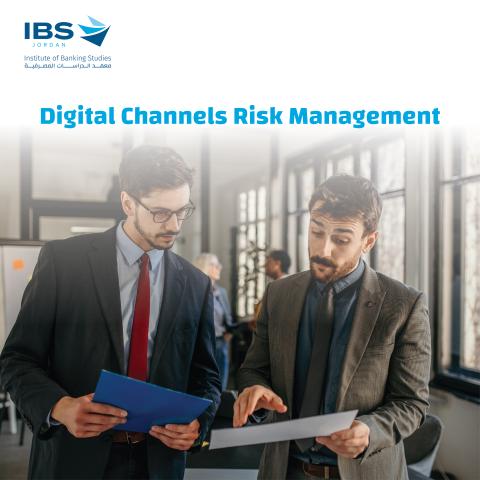
By the end of this training course, trainees will be able to:
- Identify digital channel associated risks.
- Identify related regulation to digital channels.
- Specify assessment techniques of Digital Channels Risk.
- Effectively manage and mitigate risks in digital channels.
- Risk Management Director, Risk Management Officers, Information Security Director, Information Security Officers, Internal Audit Officers, Director Project Management and Officers, Retail Credit Management Officers, Director and Sales Officers ,Compliance officers , any employee work in digital channels department.
- Introduction to Risk Management:
- Introduction to Risk Management.
- Key principles and concepts in risk management.
- The impact of digital channels on overall organizational risk.
- Digital Channels Risk Management:
- Type of Digital Channels (Communication Channels, Transactional Channels, Informational Channels, Marketing Channels).
- Overview of the risk management framework tailored for digital channels.
- Components of the framework, including risk identification, assessment, mitigation, and monitoring.
- Risk Identification and Assessment Techniques :
- Strategic Risk (Definition and examples of strategic risks, including ineffective products, failure to respond to business environment changes, and inadequate resource allocation).
- Financial Risk (Definition and examples of financial risks, such as credit risk, liquidity risk, and market risk).
- Technology Risk (Definition and examples of technology risks, including system failures, data breaches, and cyber-attacks).
- Fraud Risk (Definition and examples of fraud risks, including customer fraud, agent fraud, and system administration fraud).
- Operational Risk (Definition and examples of operational risks, including inadequate internal processes, human error, and external events).
- Reputational Risk (Definition and examples of reputational risks, including negative publicity, poor customer service, and unethical behavior).
- Partnership Risk (Definition and examples of partnership risks, including poor business partner performance, conflicts of interest, and legal/regulatory issues).
- Agent Management Risk (Definition and examples of agent management risks, including inadequate agent training, poor performance, and fraud).
- Compliance/Regulatory Risk (Definition and examples of compliance/regulatory risks arising from non-compliance with regulations and industry standards).
- Continuous Monitoring:
- The role of continuous monitoring in risk management.
- Developing and implementing a continuous monitoring strategy.
- Tools and techniques for effective continuous monitoring.
- Related Regulation .
- Case Studies .
